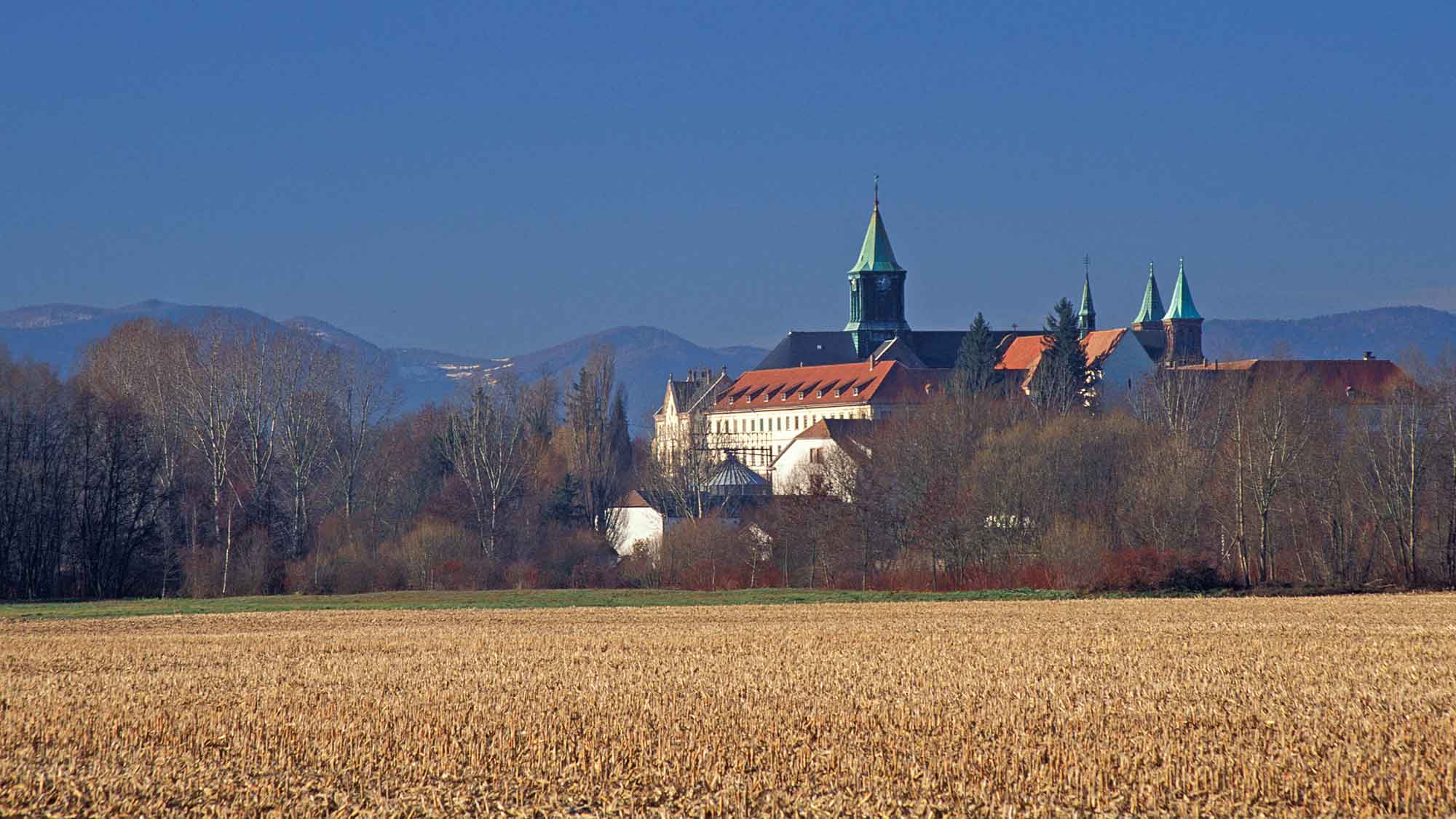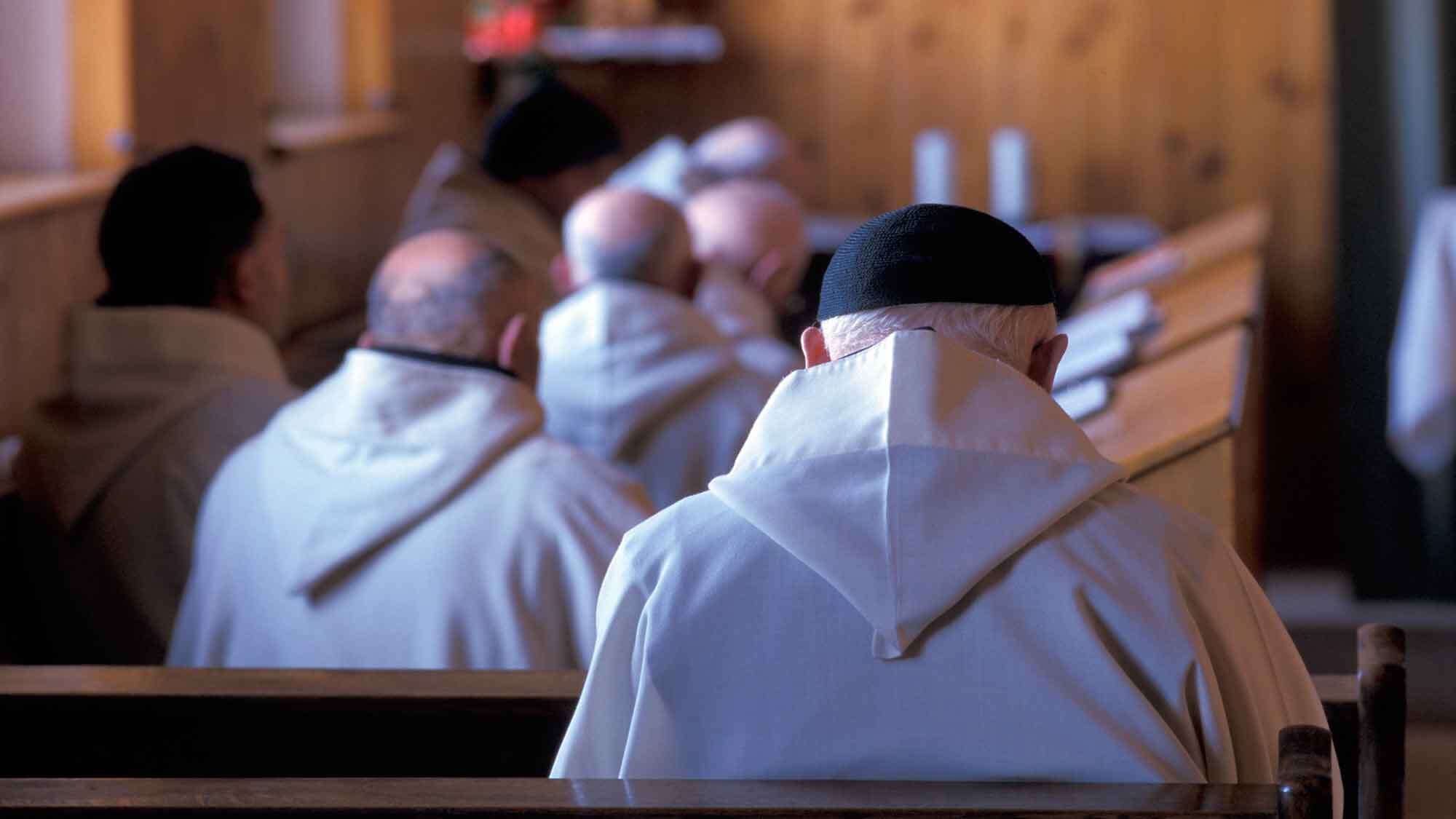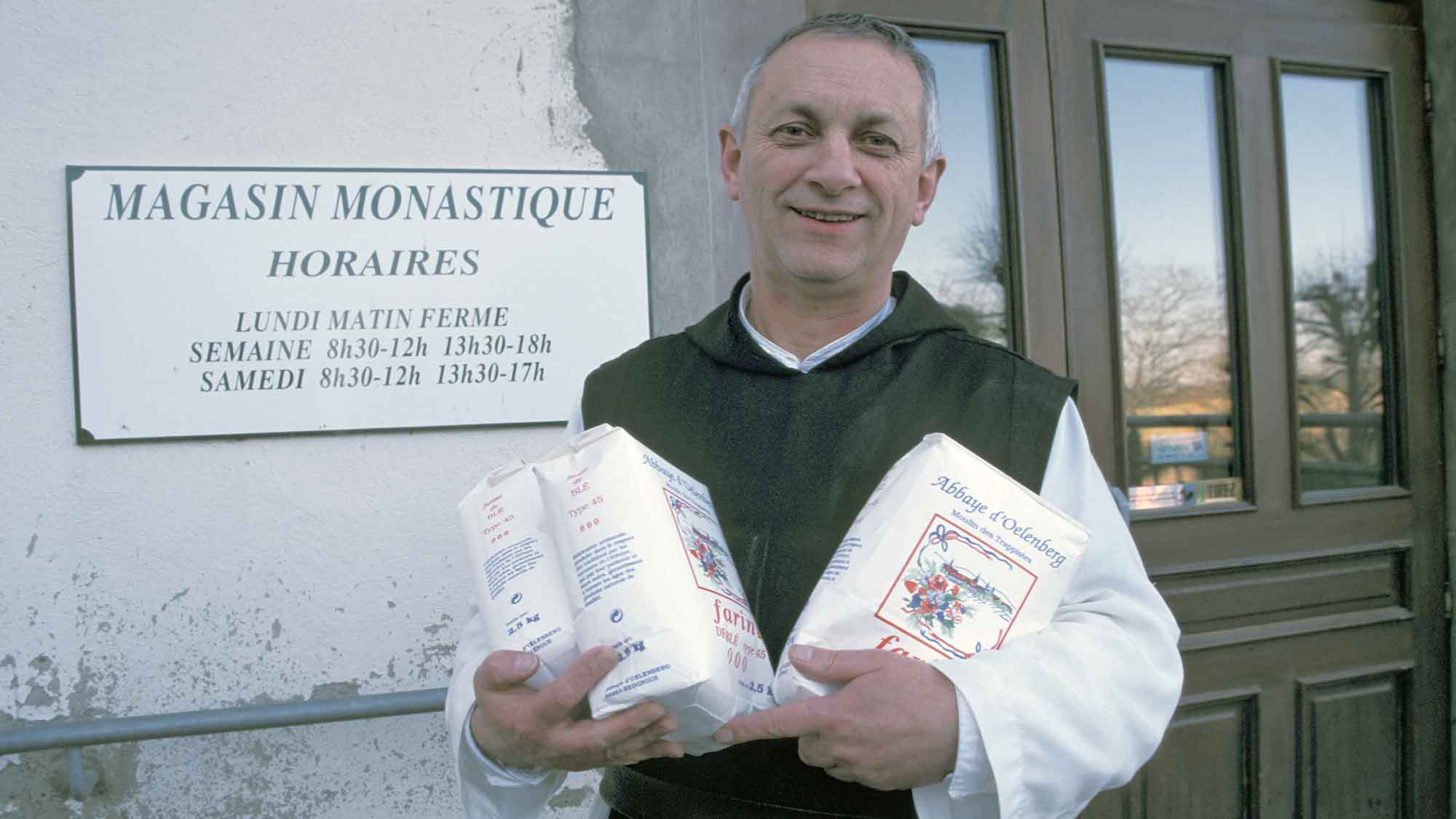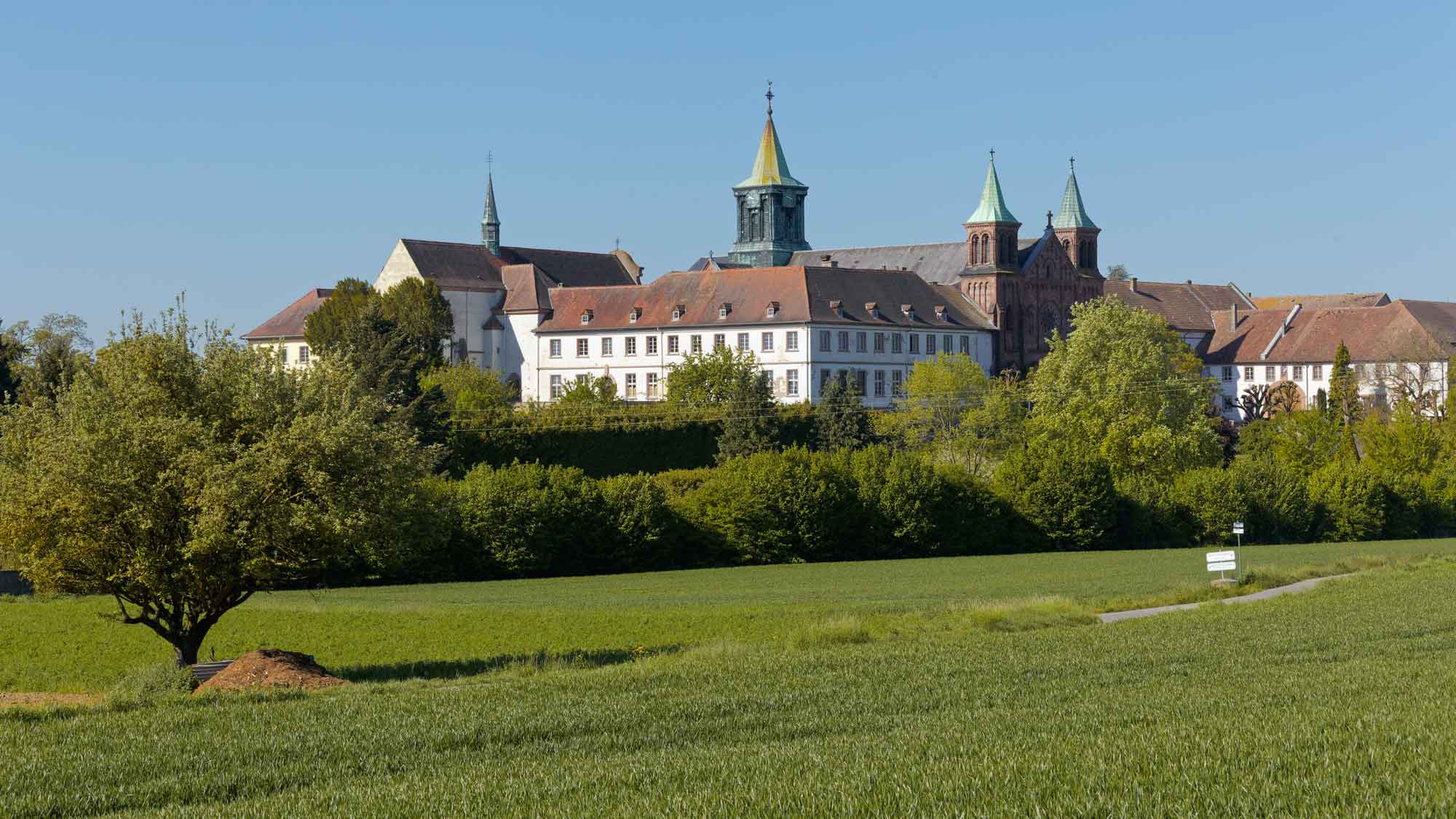The monastery with the organic farm
In 1046, Helwige de Dabo, wife of Hugo IV Count von Eguisheim, founded the Oelenberg Monastery and her son Bruno, the Pope Leo IX mentioned, placed it directly under the rule of the pope. The monastery, which lies on a hill west of Reiningue, is still filled with religious life today. Its name comes from the Celtic and means ‹barrage sur l’eau›. There may have been a sanctuary here since pre-Christian times. The huge estate still houses fourteen monks, who as Trappists belong to the Cistercian order founded by Bernard de Clairvaux. The Trappists are reformed Cistercians, whose reform began in the 17th century in La Trappe monastery in Normandy. Their goal was to renew the original way of life in the founding monastery of Citeaux, which entails: even stricter living habits with contemplation, constant silence, daily handwork also for the priest monks in agriculture and industry for livelihood and vegetarian food.
Life in the monastery means awake at 3:30 a.m. The monks of Oelenberg introduced organic cultivation in their large monastery garden years ago, operate a grain mill and have set up a large shop where they offer their culinary Alsatian specialties as well as products from countless other monasteries. If you want to get out of the hustle and bustle of everyday life for a short time, you will find accommodation in the monastery. The place is also visited by many people who need help and support. Oelenberg looks like a quiet island in the hustle and bustle of time – an unusual place of depth that leaves traces in the mind.




